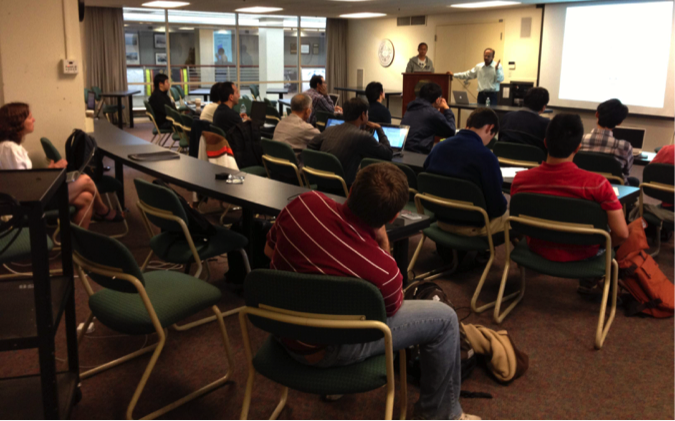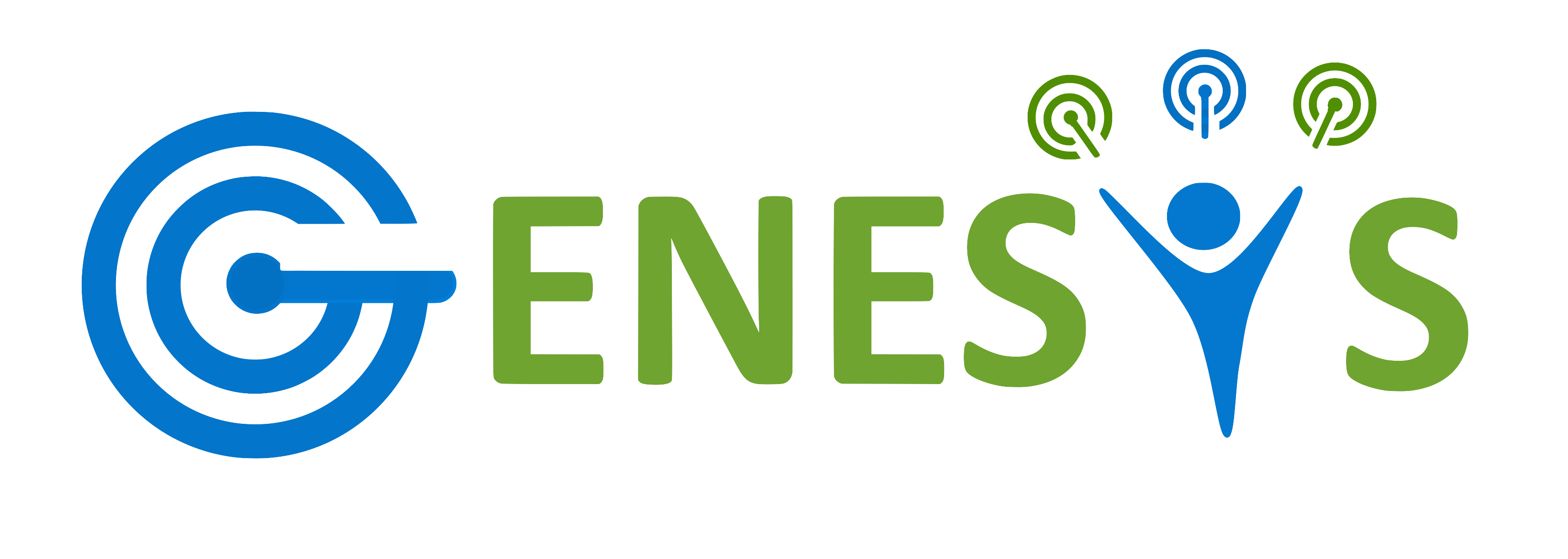Building Bridges Program
GENESYS lab participates in the Building Bridges outreach program, where high school freshmen, sophomores, and juniors get an early exposure to engineering in a day-long visit to the NU campus. For this event, we have developed an educational game that runs on the Google Nexus-`S' Android phone. Here, the students search for so called "radio eggs" spread throughout the campus with the phone, which are actually beacon signals transmitted by pre-selected access points. The phone displays an "egg-found" message only when the signal strength is between -65 to -70 dBm. For lower magnitudes of signal strength, the phone hints at a nearby presence of the egg by changing the color to blue e.g., Bike stand. All identified eggs switch permanently to green with a strike-out. At the end of the activity, students are explained concepts of the exponential fall of signal strength, path loss in the wireless channel, device addressing through beacon exchanges, and factors impacting correct packet reception. The game code can be downloaded from here.

Hosting Middle School Students
GENESYS Lab partners with Brooke Charter Schools to host 50-60 students for a half day event with interactive demonstrations, presentations, and discussions with faculty and students. This school system has five branches and academic levels upto K-8 with 94% of the students in attendance being of African-American and Latino background. Previous demonstrations have included showing wireless signal energy distribution through our RF energy harvesting sensors that are connected to a buzzer. The audio tones indicate how much energy has been harvested at a location, followed by explanations on why tones (and hence, energy levels) differ by location.

Research Experiences for Undergraduates (REU)
GENESYS welcomes 2-3 committed undergraduate students to work on an active NSF funded project through REU funds. Apart from performing cutting edge research early on in their careers, students participate in active discussions with laboratory members, attend reporting calls to sponsors to describe their contributions, and review technical literature under the direct mentorship of Prof. Chowdhury and senior Ph.D. students. Previous undergraduate participants and their academic level at the time of their REU experience include:
- Taylor Skilling, 3rd year
- Megan Wood, 1st year
- Kevin Lange, 5th year
Summer Schools at NU
Prof. Chowdhury, students at the GENESYS Lab, and other faculty from NU (Stefano Basagni) and University of Rochester (Wendi Heinzelman) co-organized an international summer school in May 2013, called Green Communications and Networking (GreenComNet), where 15 graduate and undergraduate students were supported with travel and lodging (the school was open to others on a self-funded basis, through the NSF funded project 1143681. GreenComNet brought together leading faculty and industry speakers in the areas of smart grid, RFID, sensor networks and compressive sensing on a common stage for an intensive 4-day program. Feedback indicated that students enjoyed not just the talks, but found that this was a more relaxed forum for interacting with the experts in the area (as opposed to traditional conference settings) that ultimately proved helpful in shaping their future research goals.


Professional/Continuing Education
Prof. Chowdhury participates in the Gordon Leadership Program, which is an intensive one-year graduate program for producing the next generation of U.S. engineers. The participants of this program are typically full time employees of their sponsoring company, and develop a challenge project that will accomplish an objective that is of strategic importance to their company. A unique feature of this program is that students prepare business models, identify markets, and interact with private and public investors, and are ultimately given a certificate in leadership upon the successful presentation of their project. Previous industry professionals who have worked in the GENESYS Lab under this program, and their then appointments are:
- Jeremy Lerch, Raytheon
- Geoffrey Ashton, Raytheon
Museum of Science, Boston
The Museum of Science (MoS) in Boston is a premier, informal learning institution that plays a key role in raising awareness and excitement in STEM disciplines, and directly helps the formal pre K-12 education system. We have participated in an open lecture session organized by the museum, and an all day exhibit based outreach activity based on intelligent radios at the MoS, with the recorded interview downloadable in the iTunes format here.
